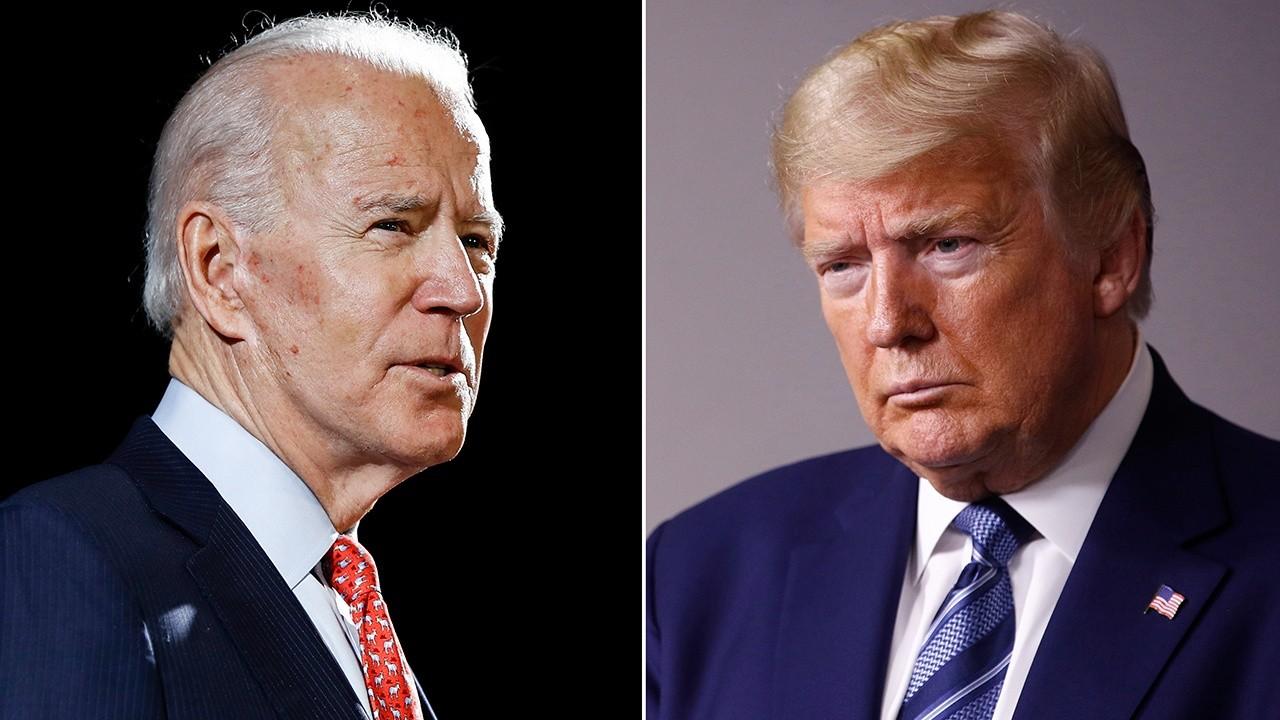What are campaign bundlers?
Bundlers are playing a growing role in American congressional and presidential campaigns
With less than four months to go until the November election, the money race is heating up between President Trump and presumptive Democratic nominee Joe Biden.
In June, the Biden campaign and the Democratic National Committee raised about $141 million in June -- its biggest month by far. The Trump 2020 reelection campaign and the Republican National Committee, meanwhile, raised about $131 million.
HOW MUCH CAN YOU DONATE TO A 2020 PRESIDENTIAL CANDIDATE?
Both campaigns have leaned on a network of wealthy donors and bundlers to power their bids for president, and the campaigns have been called upon by a cross-section of ideological groups to disclose who is bundling contributions together for their campaign.
Bundlers, who have played a growing role in American politics, are people who organize and collect campaign contributions by tapping their network of friends and acquaintances. However, there's no law requiring that campaigns disclose who their bundlers are, so long as they are not active, federally registered lobbyists. Campaigns are required to disclose bundlers who are registered federal lobbyists, however.
“Bundlers frequently raise vast sums of money for candidates, often hundreds of thousands — if not millions — of dollars, to curry favor with those candidates,” one coalition wrote in a letter last year calling on candidates to release lists of their top fundraisers.
HOW MUCH CAN CORPORATIONS GIVE TO 2020 POLITICAL CORPORATIONS?
Some of Biden's big-bundler names, a list of which he released in December under mounting pressure from other Democrats, include Pennsylvania Sen. Bob Casey, Delaware Sen. Chris Coons and former Sen. Dianne Feinstein and her husband Richard Blum. Other politicians who donated to Biden were Connecticut Gov. Ned Lamont and President Clinton’s chief of staff Erskine Bowles.
There are technical limits on how much an individual can donate to one candidate, which make bundlers an even more important factor in campaign fundraising: Since 2002, when a new set of campaign finance law went into effect, the Federal Election Committee updates certain contribution limits, like the amount that a person can give to candidates and party committees, every two years. Those amounts are indexed to inflation.
But after a 2014 Supreme Court decision, McCutcheon v. FEC, there is no longer an aggregate limit on how much one person can donate in total to all candidates, PACs and party committees combined.
For instance, an individual is only allowed to donate $2,800 directly to each candidate each election, but because of the Supreme Court ruling, that donor could give the same amount to 25, or 100, contenders if they chose to do so. The same goes for party committees, which can accept up to $35,500 a year. A person could also give $106,500 to a party’s convention, recount and building funds.




















